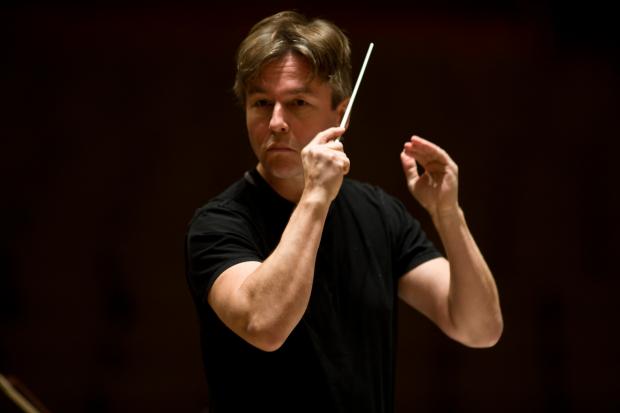Philharmonia/Salonen
28 September, 2013
– The Anvil, Basingstoke
 |
| Esa Pekka Salonen |
The bustle of imperial Vienna, circa 1814, might seem a
long way from modern-day Basingstoke, but it was a forceful slice of that city’s
musical heritage that opened the Anvil’s 2013-14 International Concert Series.
The Philharmonia Orchestra and their distinguished music director, Finish
conductor and composer Esa Pekka Salonen, sailed through Beethoven’s beefy Namensfeier overture, a piece originally
intended to sell the composer’s wares to the great and good of Europe.
Monarchs, aristocrats and diplomats descended on the Austrian capital at the
behest of the country’s Emperor, where they hoped to fix the continent-wide
mess left by one Napoleon Bonaparte. Beethoven – ever the shrewd businessman –
saw a golden opportunity to appeal to potential patrons, but in the end, he
couldn’t finish this rousing orchestral piece in time, substituting some little
known and little regarded crowd-pleasers in its place. In truth, Namensfeier
(‘feast day’ or ‘name day’) isn't one of Beethoven’s best, but orchestra
and conductor made sure it packed a considerable punch.
Beside Beethoven’s stormy vision of Romanticism in music,
Robert Schumann’s can seem Romanticism’s sensitive and delicate face. Polish
pianist Piotr Anderszewski, though, injected sparkle into Schumann’s sober
Piano Concerto of 1845, pulling it away from the straight and narrow with ease.
This is music that can sound a little prim; not so for Anderszewski, in whose
hands Schumann’s understated piano writing ebbed and flowed. His compelling way
with it was even enough to distract from the mistakes he scattered through the
last movement, though a few of his extreme manipulations of tempo must have had
the collective hearts of his conductor and orchestra missing a beat or two.
Whatever fleeting waywardness Anderszewski might have
shown, though, was no match for the musical madness of Hector Berlioz, the
wildly inventive French composer whose music was so radical that it had to wait
a century before being properly appreciated. His Symphonie Fantastique is one
great hallucinogenic musical trip – it imagines its own lovelorn composer’s
attempted opium overdose and subsequent visions of masked balls, witches and
executions. It also happens to be one of classical music’s most brilliant
showpieces, giving the musicians of the Philharmonia ample chance to dazzle with
their abilities. Their wind players brought tremendous elegance to Berlioz’s
unique writing; their brass players drove his excesses home with terrific commitment.
At the helm, Salonen moulded the hour-long Symphonie into a helter skelter of
musical adventure, all luscious strings and thumping percussion. It utterly
baffled its first audience in 1830; this one brought the house down.
No comments:
Post a Comment